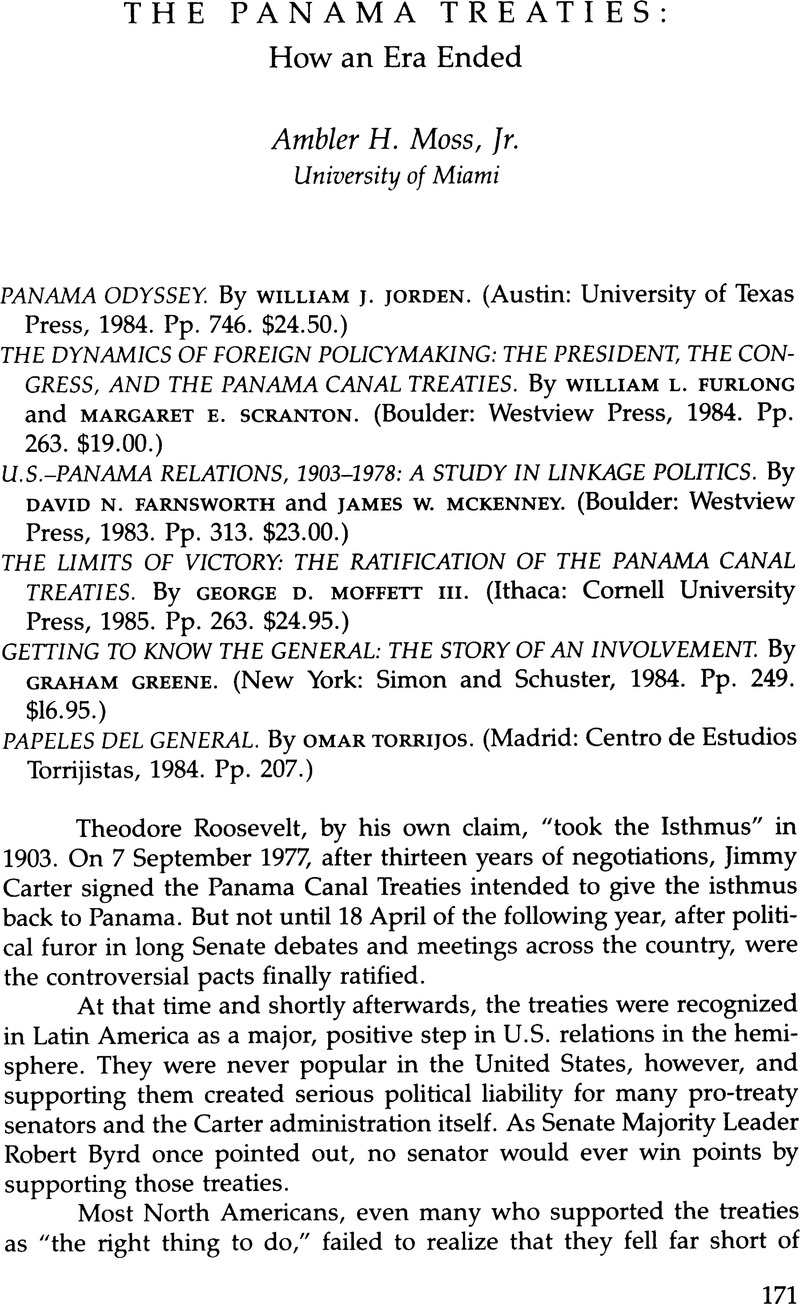Published online by Cambridge University Press: 12 October 2022

1. Jimmy Carter, Keeping Faith: Memoirs of a President (New York: Bantam, 1982), 169–70.
2. See Cyrus Vance, Hard Choices (New York: Simon and Schuster, 1983). Vance recognized the dangerous quality of the DeConcini resolution, which he said nearly caused the Panamanians to reject the Neutrality Treaty, 154–55.
3. The Panamanian government has consistently taken the position that the Panama Canal Act (PL95–70) violates both the spirit and letter of the treaties.
4. Furlong and Scranton also state, however, that “the Senate's actions on the treaties strengthened, clarified and improved them. …” I strongly disagree, in the light of the DeConcini and other unpalatable reservations and understandings reluctantly agreed to by the Carter administration in order to win votes.
5. Indispensable to the student is the vast compendium of documents contained in Background Documents Relating to the Panama Canal, edited by the Congressional Research Service of the Library of Congress (Washington: U.S. Government Printing Office, 1977).
6. David McCullough, The Path between the Seas (New York: Simon and Schuster, 1977).
7. For another set of fascinating character sketches of Torrijos drawn during the period of the Shah's stay in Panama, see Hamilton Jordan, Crisis: The Last Year of the Presidency (New York: G. P. Putnam's Sons, 1982).
8. One work deserving special mention is Rómulo Escobar Betancourt's Torrijos: espada y pensamiento (Panama City: privately printed, 1982).